
Find Help
More Items From Ergsy search
-

What regions of the UK are most affected by mosquito-borne diseases?
Relevance: 100%
-

Is there a season when mosquito-borne diseases are more likely in the UK?
Relevance: 75%
-
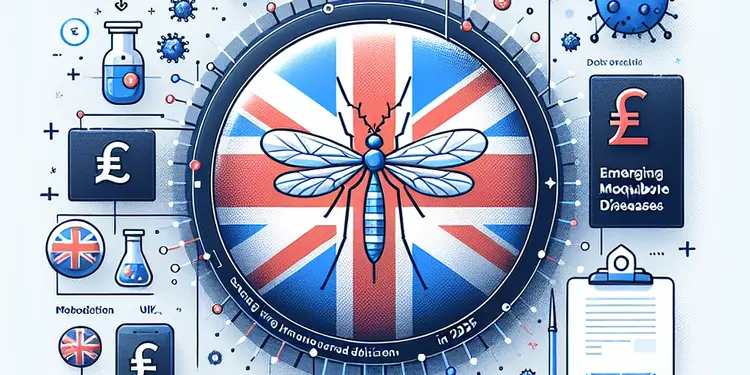
Are there any new mosquito-borne diseases emerging in the UK in 2025?
Relevance: 72%
-

What research is being conducted on mosquito-borne diseases in the UK?
Relevance: 71%
-

Are any vaccines available in the UK for mosquito-borne diseases?
Relevance: 65%
-

What symptoms should I watch for if I suspect a mosquito-borne disease?
Relevance: 65%
-

What diseases are spread by mosquitos in the UK in 2025?
Relevance: 53%
-

What should travelers to the UK know about mosquito-borne diseases?
Relevance: 52%
-

How do climate changes affect mosquito-borne diseases in the UK?
Relevance: 51%
-
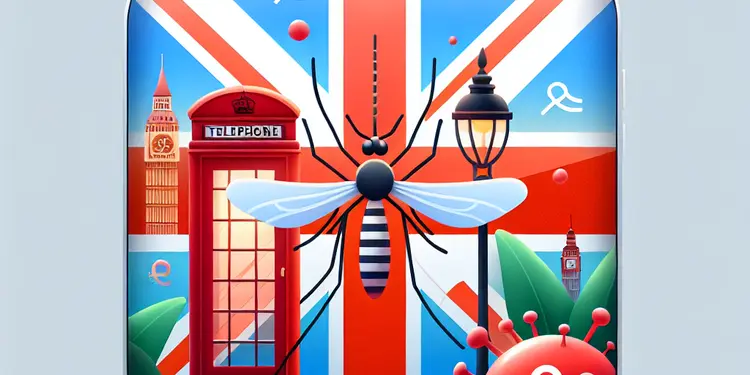
Can mosquitoes transmit any bacterial diseases in the UK?
Relevance: 49%
-

Do UK mosquitoes carry diseases?
Relevance: 49%
-
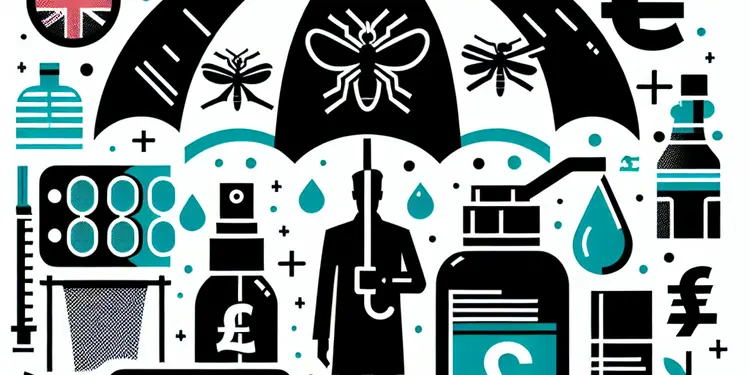
What measures are being taken to prevent mosquito-borne diseases in the UK?
Relevance: 47%
-

Is obesity more prevalent in certain regions of the UK?
Relevance: 39%
-
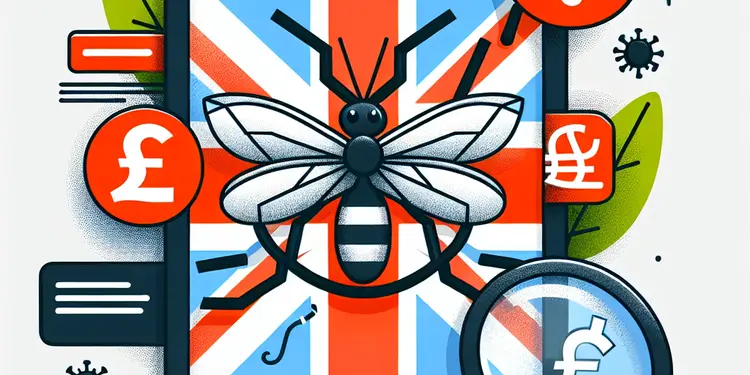
Do all mosquitoes in the UK carry diseases?
Relevance: 38%
-

What regions are most at risk for Nipah Virus outbreaks?
Relevance: 35%
-

Does inheritance tax vary by state or region?
Relevance: 33%
-
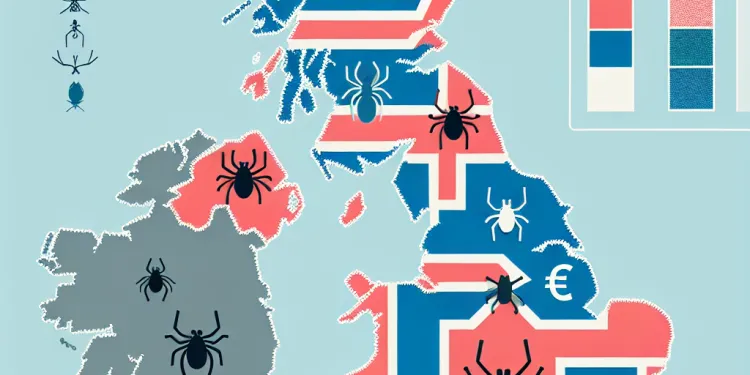
Where is Lyme disease most commonly found?
Relevance: 32%
-

Is Chagas disease a concern with blood transfusions?
Relevance: 31%
-

Do hosepipe bans apply to all regions in a country?
Relevance: 29%
-
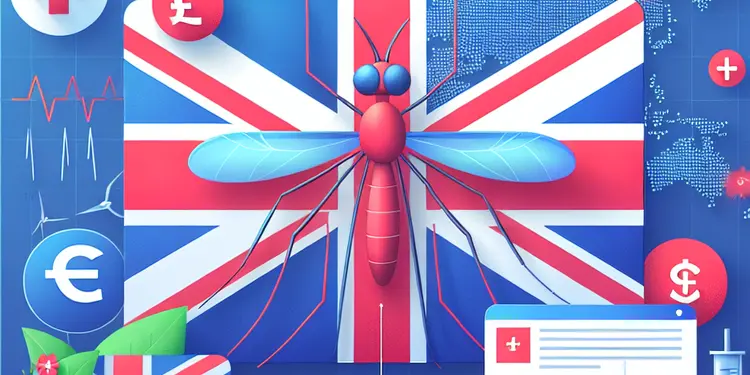
Can dengue fever be contracted in the UK?
Relevance: 29%
-
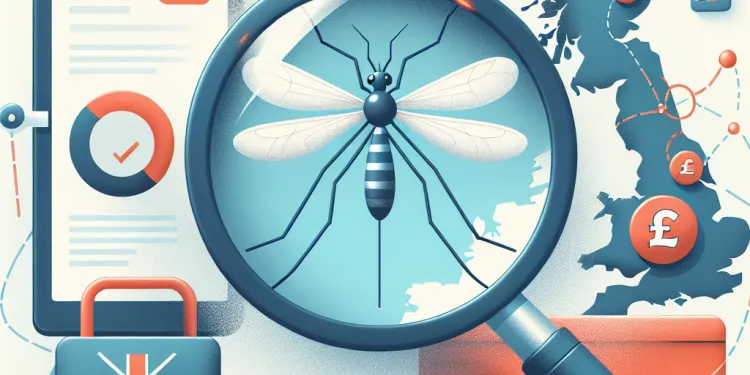
Are there any government initiatives to control mosquitoes in the UK?
Relevance: 29%
-

What is Lyme Disease?
Relevance: 28%
-

What is the mortality rate of Marburg virus disease?
Relevance: 28%
-
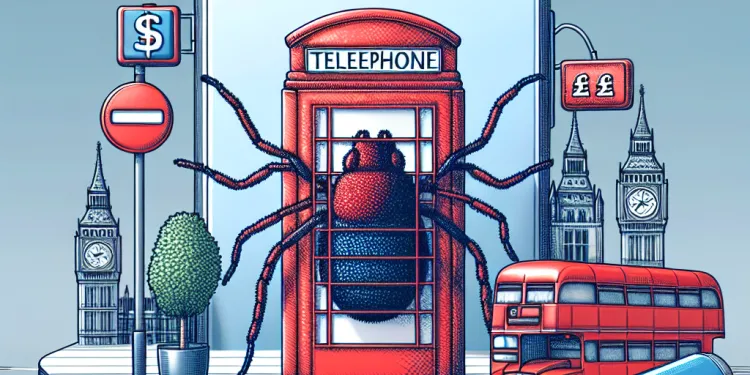
Is Lyme disease contagious between humans?
Relevance: 27%
-

What causes Crohn's disease?
Relevance: 27%
-

How does Huntington's disease affect emotions?
Relevance: 27%
-

Can Lyme disease be treated?
Relevance: 27%
-

Can screw worms cause zoonotic disease?
Relevance: 26%
-
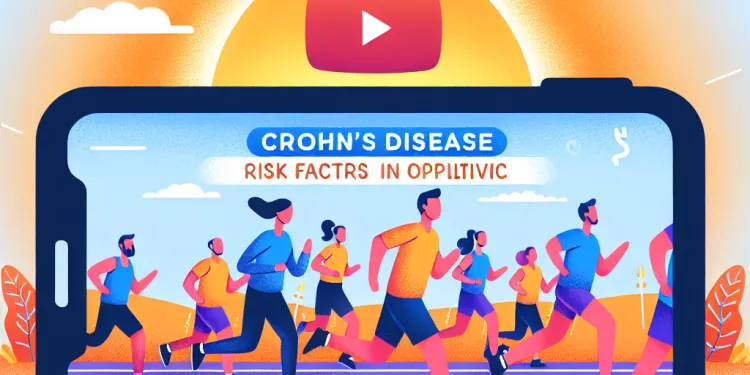
Who is at risk of developing Crohn's disease?
Relevance: 26%
-

Coeliac disease
Relevance: 26%
-

Coeliac Disease: Session 1: What is Coeliac Disease?
Relevance: 26%
-

Is there a vaccine for Lyme disease?
Relevance: 26%
-

How is sickle cell disease diagnosed?
Relevance: 26%
-

Is there a risk of yellow fever being spread by mosquitoes in the UK?
Relevance: 26%
-

What is the first sign of Lyme disease?
Relevance: 25%
-

What diseases can be spread by blood transfusions?
Relevance: 25%
-

How is Lyme disease transmitted?
Relevance: 25%
-

Are there different types of motor neurone disease?
Relevance: 25%
-

How does Huntington's disease affect movement?
Relevance: 25%
-

Is Huntington's disease fatal?
Relevance: 24%
Introduction
Mosquito-borne diseases are illnesses that are transmitted to humans through the bites of infected mosquitoes. In the UK, these diseases are not as prevalent as in tropical and subtropical regions due to the temperate climate. However, changes in climate and travel patterns could potentially increase the risk of certain mosquito-borne diseases in the future. This article explores which regions in the UK could be most affected by these diseases.
Current Situation in the UK
Currently, the UK experiences very few cases of mosquito-borne diseases. The most commonly discussed diseases of this type include malaria, dengue fever, and West Nile virus. However, the cases typically reported in the UK are imported, meaning they are contracted abroad and diagnosed upon return to the country. Local transmission has historically been negligible.
Potentially Affected Regions
While the incidence of mosquito-borne diseases is low across the entire UK, some regions have conditions that could potentially harbor mosquitoes capable of spreading diseases. Southern parts of England, particularly areas like Kent and Essex, could be more susceptible due to their milder climates. The presence of wetlands and marshes in these areas can provide suitable habitats for mosquitoes.
Climate change may lead to warmer temperatures, creating a more suitable environment for mosquitoes to breed. This includes not only southern England but potentially parts of Wales and the Midlands, where warmer and wetter summers could encourage mosquito activity.
Role of Urban and Rural Settings
Urban areas such as London could face higher risks due to international travel. Significant international travel hubs may bring in mosquitoes as unintentional passengers, which could then lead to isolated outbreaks if conditions are favorable. However, in the countryside, especially in coastal and marshy areas, the natural environment could support larger mosquito populations if the climate continues to warm.
Preventative Measures
Monitoring mosquito populations is crucial in potentially at-risk regions. Public health initiatives focus on awareness and prevention, such as reducing standing water in urban environments and encouraging travelers to seek medical advice if experiencing symptoms after visiting countries where mosquito-borne diseases are prevalent.
Research initiatives supported by UK universities and Public Health England (now UK Health Security Agency) are actively investigating mosquito behaviors and potential future scenarios involving mosquito-borne diseases in the UK.
Conclusion
Currently, the risk of mosquito-borne diseases in the UK remains low. However, climate change, globalization, and ecological shifts mean that certain regions could see an increased risk in the future. Southern England, particularly coastal and wetland-rich areas, may experience greater exposure. Ongoing research and public health monitoring are essential to mitigate these risks and prepare for changing environmental conditions that could affect public health.
Introduction
Mosquito-borne diseases are illnesses caused by mosquito bites. In the UK, these diseases are rare because of the cooler weather. But, changes in weather and more people traveling could make these diseases more common. This article looks at which parts of the UK could be affected by mosquito-borne diseases.
Current Situation in the UK
Right now, there are very few mosquito-borne diseases in the UK. Some diseases like malaria, dengue fever, and West Nile virus are talked about. Most cases are from people who got sick while traveling outside the UK and then came back. In the UK, there's almost no spreading of these diseases.
Potentially Affected Regions
Few places in the UK have a risk of mosquito-borne diseases. Southern England, like Kent and Essex, might be at risk because it's a bit warmer there. Wetlands and marshes in these areas could be home to mosquitoes. Warmer weather from climate change might make this risk bigger. Not just in southern England, but also in Wales and the Midlands where summers might get warmer and wetter.
Role of Urban and Rural Settings
Cities like London could have more risk due to people traveling from different countries. Mosquitoes can come with travelers by accident, causing small outbreaks if the weather is right. In the countryside, near coasts and marshes, mosquitoes might find it easier to live if the weather gets warmer.
Preventative Measures
Watching where mosquitoes are is very important in areas at risk. Health groups focus on teaching people how to stop mosquito-borne diseases. They also tell travelers to get medical help if they feel sick after being in places with these diseases. UK universities and health agencies study mosquitoes to understand the risks better.
Conclusion
Right now, the chance of getting a mosquito-borne disease in the UK is low. But, changes in weather and more world travel mean that some places might have more risk in the future. Southern England, especially near coasts and wetlands, might face bigger risks. Keeping an eye on mosquitoes and health research is key to staying safe and ready for any changes.
Frequently Asked Questions
What regions in the UK are most affected by mosquito-borne diseases?
In general, the UK is not significantly affected by mosquito-borne diseases compared to tropical and subtropical regions. However, areas with more wetlands or standing water can have more mosquitoes.
Are there any specific mosquito-borne diseases prevalent in the UK?
The risk of mosquito-borne diseases within the UK is considered very low, as the climate does not generally support the species that transmit typical diseases like malaria or dengue.
Which types of mosquitos are found in the UK?
The UK has several mosquito species, mostly belonging to the genera Anopheles, Culex, and Aedes, but they are not significant carriers of disease in the region.
Has climate change affected mosquito populations in the UK?
There is ongoing research about how climate change may affect mosquito populations, leading to increased concern about potential future risks of mosquito-borne diseases in warmer areas.
Is there a risk of malaria in the UK?
There is negligible risk of malaria in the UK as it was eradicated over 100 years ago, but there is concern about cases in travelers returning from endemic areas.
Are there efforts to monitor mosquito-borne diseases in the UK?
Yes, Public Health England and other health bodies actively monitor potential mosquito vectors and possible cases from international travel.
Have any invasive mosquito species been found in the UK?
While some invasive species, like the Asian tiger mosquito, have been detected during monitoring, they have not established stable populations yet.
What are some common mosquito habitats in the UK?
Mosquitoes in the UK are found in areas with standing water, such as ponds, marshes, and wetlands.
Is West Nile Virus a concern in the UK?
West Nile Virus is not currently established in the UK, but authorities monitor bird and mosquito populations for any potential risks.
Do UK residents need to take precautions against mosquito bites?
While the risk is low, visitors to areas with high mosquito populations might use repellent in summer months as a precaution.
What regions in the UK have higher mosquito activity?
Warmer and wetter regions, like parts of southern England, may have increased mosquito activity compared to other areas.
Are there specific times of the year when mosquitoes are more prevalent in the UK?
Mosquito activity in the UK is typically highest in the summer months when temperatures are warmer.
Do standing water features in residential areas contribute to mosquito presence?
Yes, standing water in gardens or other residential areas can attract mosquito breeding.
Is dengue fever a threat in the UK?
No, dengue fever is not present in the UK, but potential cases relate to travel to endemic zones.
What measures are taken in the UK to control mosquito populations?
Control measures focus on monitoring and reducing standing water where mosquitoes breed, as well as public education.
Is there any research being conducted on mosquitoes in the UK?
Research institutions occasionally study local mosquito populations to assess the risk of emerging diseases.
How does the UK public health system prepare for mosquito-borne diseases?
The UK employs surveillance and response strategies for vector control and monitors travel-imported cases.
How can individuals reduce mosquito populations around their homes?
Homeowners are advised to eliminate standing water and use mosquito nets or repellents as preventative measures.
Have there been any outbreaks of mosquito-borne diseases in the UK recently?
There have been no recent outbreaks of mosquito-borne diseases originating in the UK.
What should travelers returning to the UK do if they suspect a mosquito-borne illness?
Travelers should seek medical attention and inform healthcare providers about recent travel to mosquito-endemic areas.
Where in the UK do people get sick from mosquitoes the most?
In the UK, mosquitoes don't spread many diseases. Places with lots of water, like wetlands, might have more mosquitoes.
Do mosquitoes in the UK carry any diseases?
Mosquitoes are tiny flying insects. In some places, mosquitoes can spread diseases. But in the UK, it's not common for mosquitoes to carry diseases that make people sick.
If you want to be extra safe, you can use tools like repellent sprays or wear long sleeves outside.
If you have questions, talking to a doctor or a nurse can help you understand more.
It is very unlikely to get diseases from mosquitoes in the UK. The weather in the UK is not good for mosquitoes that spread diseases like malaria or dengue.
What kinds of mosquitoes live in the UK?
In the UK, there are different types of mosquitoes. The main types are called Anopheles, Culex, and Aedes. But don't worry! These mosquitoes usually don't spread diseases in the UK.
Has climate change changed the number of mosquitoes in the UK?
Climate change means the weather is getting warmer. Warmer weather can make mosquitoes live in new places.
In the UK, it is getting warmer. This might mean more mosquitoes are living here now.
If you find reading hard, try using pictures or asking someone to read with you.
Scientists are studying how changes in the weather make more mosquitoes. This can be a worry because mosquitoes can carry diseases that make people sick. As it gets warmer, there might be more danger from diseases spread by mosquitoes in hot places.
Can you get malaria in the UK?
No, you cannot get malaria in the UK. Malaria is found in some hot countries. You are safe from it in the UK.
If you go to a country where malaria happens, use bug spray and nets. These help keep you safe from mosquito bites.
There is almost no risk of getting malaria in the UK. Malaria was wiped out here more than 100 years ago. But, we do worry about people who come back from places where malaria is common.
Is anyone checking for diseases spread by mosquitoes in the UK?
People are working to see if mosquitoes are spreading diseases in the UK. They watch and test mosquitoes.
Tools that can help:
- Using pictures and videos to explain
- Reading with a helper or friend
- Using simple diagrams or charts
Yes, Public Health England and other health groups keep an eye on mosquitoes and people coming from other countries who might be sick.
Are there any new types of mosquitoes in the UK?
Scientists look for new types of mosquitoes in the UK. Some mosquitoes can be invasive, meaning they are not from the UK but come from other places. It's important to check because these new mosquitoes can bring diseases.
If you find a mosquito that looks strange, you can use a picture guide or ask an expert for help.
Some new animals or bugs, like the Asian tiger mosquito, have been seen during checks. But they do not live here all the time yet.
Where do mosquitoes live in the UK?
Mosquitoes live in the UK. You can find them near water that does not move, like ponds and marshes.
Is West Nile Virus a problem in the UK?
West Nile Virus is spread by mosquitoes.
In the UK, there are no reports of West Nile Virus in people.
It is not a big worry right now.
If you are worried about mosquitoes, you can:
- Use bug spray on your skin.
- Wear long sleeves and pants to cover your skin.
- Put screens on windows to keep mosquitoes out.
West Nile Virus is not in the UK right now. But, people in charge keep an eye on birds and mosquitoes to make sure there's no danger.
Do people living in the UK need to be careful about mosquito bites?
Mosquitoes are small flying insects. They can bite people and cause itchy spots. Some mosquitoes carry diseases, but this is rare in the UK. It's still a good idea to avoid bites.
Here are some simple ways to stay safe:
- Wear long sleeves and trousers when outside.
- Use bug spray on your skin.
- Keep windows and doors closed or use a screen.
- Get insect nets for your bed if you need to.
If you have questions, you can ask a trusted adult or talk to a doctor.
The chance of getting sick is small. But when you visit places with lots of mosquitoes in the summer, it's a good idea to use bug spray to stay safe.
Where in the UK do you find more mosquitoes?
In warm and wet places, like parts of southern England, there might be more mosquitoes than other places.
When do we see more mosquitoes in the UK?
Mosquitoes are tiny flying bugs. They like warm weather. In the UK, you will see more mosquitoes in summer when it is warm. Summer is the months of June, July, and August.
Mosquitoes like it when it rains, too. This is because they lay eggs in water.
You might find it helpful to use a calendar to see when summer happens.
In the UK, mosquitoes are most active in the summer when it is warm outside.
Do water features in yards bring more mosquitoes?
Do things like ponds in gardens increase the number of mosquitoes?
Here are some tips to help understand:
- Water features are things like ponds or fountains.
- Mosquitoes like to lay eggs in water.
- More water can mean more places for mosquitoes.
Using helpful tools:
- Look at pictures of water features and mosquitoes.
- Ask someone to read and explain it to you.
Yes, standing water in gardens or yards can bring mosquitoes. Mosquitoes like to lay eggs in water.
Can people get dengue fever in the UK?
Dengue fever is a disease. Right now, it is not a big problem in the UK.
Dengue fever happens when a certain mosquito bites you. This mosquito is not usually found in the UK.
To be safe, use bug spray and cover your skin if you go to places with dengue fever.
If you feel sick after traveling, go to the doctor.
No, people don't get dengue fever in the UK. But, if someone travels to places where dengue fever is common, they might get it there.
How does the UK keep mosquito numbers low?
The UK takes steps to stop too many mosquitoes. Here are some ways:
- Check for water: People look for water where mosquitoes lay eggs. They empty or cover things like buckets, pools, or puddles.
- Use sprays: Special sprays are used to kill mosquitoes or stop them from growing.
- Catch mosquitoes: Traps can catch mosquitoes to keep the numbers down.
Using pictures, videos, or apps can help understand these steps better.
To stop mosquitoes, we need to check and get rid of water where they lay eggs. We also need to teach people about this.
Are scientists studying mosquitoes in the UK?
Scientists are learning about mosquitoes in the UK. They want to know more about these insects.
If you want help reading, try:
- Listening to audiobooks.
- Using picture books about insects.
- Asking someone to read with you.
Sometimes, research places look at local mosquitoes to understand the risk of new diseases.
How does the UK get ready for diseases carried by mosquitoes?
In the UK, there are plans to keep people safe from diseases that mosquitoes can carry.
Here is how they get ready:
- Watch for Mosquitoes: Experts check and see if mosquitoes that carry diseases are in different places.
- Tell Everyone: They give advice on how to avoid mosquito bites, like wearing long sleeves and using bug spray.
- Doctors are Ready: Doctors are trained to help and treat any diseases that mosquitoes might spread.
- Keep Areas Clean: They work to make sure there aren’t places where mosquitoes can easily breed, like standing water.
Here are some ways you can learn more:
- Speak with a doctor or nurse for more advice.
- Visit the local health service website for up-to-date information.
The UK watches out for bugs that make people sick. They also keep an eye on people who bring sickness when they travel. This helps them stop sickness from spreading.
How can people stop mosquitoes from living near their homes?
Mosquitoes can be annoying and can spread disease. Here are some simple ways to keep them away:
- Get rid of water: Mosquitoes like to live in water. Empty water from buckets, flower pots, and bird baths often.
- Cut the grass: Keep your grass short. Mosquitoes like to hide in tall grass.
- Fix screens: Make sure windows and doors have screens with no holes. This stops mosquitoes from coming inside.
- Use spray: You can use bug spray on your skin. This can stop mosquitoes from biting.
If you need help reading, you can ask someone to read this to you or use an app that reads out loud.
If you have a house, try to get rid of any still water around. You can also use nets or spray to keep mosquitoes away. This can help stop them from bothering you.
Have there been recent mosquito-borne disease outbreaks in the UK?
Mosquitoes can spread diseases.
Has this happened in the UK lately?
You can use tools like pictures or videos to learn more.
Ask someone you trust if you need help understanding.
There have not been any new cases of diseases spread by mosquitoes that started in the UK.
What to do if you think a mosquito made you sick after a trip?
If you come back to the UK from a trip and think a mosquito made you sick, here's what you should do:
- Tell a doctor or nurse. They can help you feel better.
- Write down your symptoms. This will help the doctor understand what might be wrong.
- Rest and drink lots of water. This helps your body get strong again.
Using a calendar can help you remember when you started feeling sick. Let someone know how you feel, too!
If you have traveled to a place where there are lots of mosquitoes, tell your doctor. It is important to see a doctor if you feel sick after your trip.
Useful Links
Have you found an error, or do you have a link or some information you would like to share? Please let us know using the form below.
-->
This website offers general information and is not a substitute for professional advice.
Always seek guidance from qualified professionals.
If you have any medical concerns or need urgent help, contact a healthcare professional or emergency services immediately.
Some of this content was generated with AI assistance. We’ve done our best to keep it accurate, helpful, and human-friendly.
- Ergsy carfully checks the information in the videos we provide here.
- Videos shown by Youtube after a video has completed, have NOT been reviewed by ERGSY.
- To view, click the arrow in centre of video.
- Most of the videos you find here will have subtitles and/or closed captions available.
- You may need to turn these on, and choose your preferred language.
- Go to the video you'd like to watch.
- If closed captions (CC) are available, settings will be visible on the bottom right of the video player.
- To turn on Captions, click settings .
- To turn off Captions, click settings again.
More Items From Ergsy search
-

What regions of the UK are most affected by mosquito-borne diseases?
Relevance: 100%
-

Is there a season when mosquito-borne diseases are more likely in the UK?
Relevance: 75%
-

Are there any new mosquito-borne diseases emerging in the UK in 2025?
Relevance: 72%
-

What research is being conducted on mosquito-borne diseases in the UK?
Relevance: 71%
-

Are any vaccines available in the UK for mosquito-borne diseases?
Relevance: 65%
-

What symptoms should I watch for if I suspect a mosquito-borne disease?
Relevance: 65%
-

What diseases are spread by mosquitos in the UK in 2025?
Relevance: 53%
-

What should travelers to the UK know about mosquito-borne diseases?
Relevance: 52%
-

How do climate changes affect mosquito-borne diseases in the UK?
Relevance: 51%
-

Can mosquitoes transmit any bacterial diseases in the UK?
Relevance: 49%
-

Do UK mosquitoes carry diseases?
Relevance: 49%
-

What measures are being taken to prevent mosquito-borne diseases in the UK?
Relevance: 47%
-

Is obesity more prevalent in certain regions of the UK?
Relevance: 39%
-

Do all mosquitoes in the UK carry diseases?
Relevance: 38%
-

What regions are most at risk for Nipah Virus outbreaks?
Relevance: 35%
-

Does inheritance tax vary by state or region?
Relevance: 33%
-

Where is Lyme disease most commonly found?
Relevance: 32%
-

Is Chagas disease a concern with blood transfusions?
Relevance: 31%
-

Do hosepipe bans apply to all regions in a country?
Relevance: 29%
-

Can dengue fever be contracted in the UK?
Relevance: 29%
-

Are there any government initiatives to control mosquitoes in the UK?
Relevance: 29%
-

What is Lyme Disease?
Relevance: 28%
-

What is the mortality rate of Marburg virus disease?
Relevance: 28%
-

Is Lyme disease contagious between humans?
Relevance: 27%
-

What causes Crohn's disease?
Relevance: 27%
-

How does Huntington's disease affect emotions?
Relevance: 27%
-

Can Lyme disease be treated?
Relevance: 27%
-

Can screw worms cause zoonotic disease?
Relevance: 26%
-

Who is at risk of developing Crohn's disease?
Relevance: 26%
-

Coeliac disease
Relevance: 26%
-

Coeliac Disease: Session 1: What is Coeliac Disease?
Relevance: 26%
-

Is there a vaccine for Lyme disease?
Relevance: 26%
-

How is sickle cell disease diagnosed?
Relevance: 26%
-

Is there a risk of yellow fever being spread by mosquitoes in the UK?
Relevance: 26%
-

What is the first sign of Lyme disease?
Relevance: 25%
-

What diseases can be spread by blood transfusions?
Relevance: 25%
-

How is Lyme disease transmitted?
Relevance: 25%
-

Are there different types of motor neurone disease?
Relevance: 25%
-

How does Huntington's disease affect movement?
Relevance: 25%
-

Is Huntington's disease fatal?
Relevance: 24%


